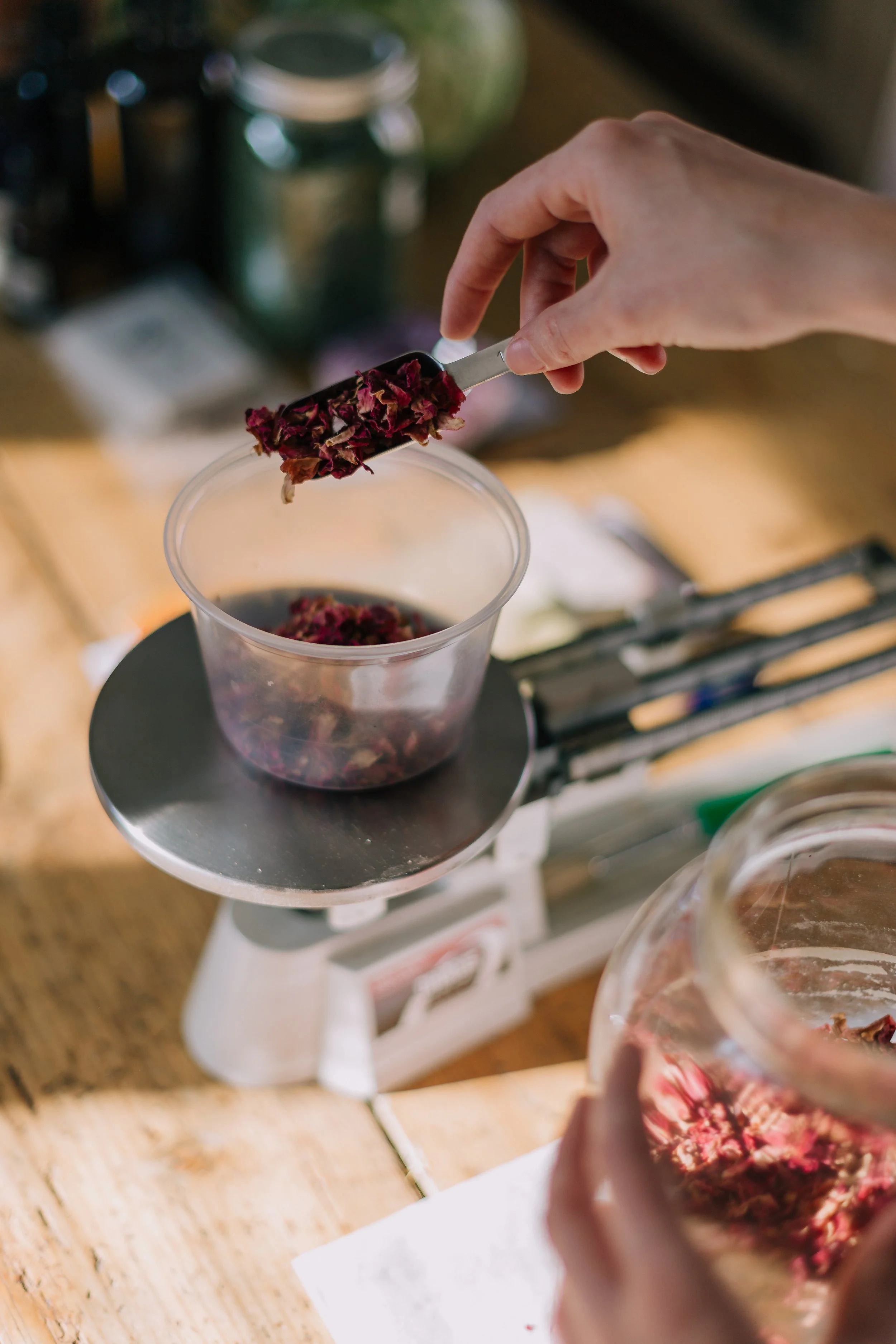FAQs
-
Herbal medicine is the art and science of using herbs for promoting health and preventing and treating illness. It has persisted as the world's primary form of medicine since the beginning of time, with a written history being more than 5000 years old. While the use of herbs in America has been overshadowed by the emergence of synthetic pharmaceuticals since World War II, 80% of the world's population still relies primarily upon traditional healing practices, most of which is herbal medicine.
-
Most pharmaceutical drugs are single chemical entities that are highly refined and purified and are most often synthesized. In 1987 about 85% of modern drugs were originally derived from plants. Currently, only about 15% of drugs are derived from plants. In contrast, herbal medicines are prepared from living or dried whole plants and contain hundreds to thousands of interrelated compounds. Science is beginning to demonstrate that the safety and effectiveness of herbs is often related to the synergy of its multi-faceted constituents, which also nourish our bodies. They are generally “low dose foods” (unless it is chocolate, which can be considered a high dose food!” (That’s one of my jokes)
-
Herbs can offer you a wide range of safe and effective therapeutic agents that you can use as an integral part of your own health care program. They can be used in three essential ways:
1) to prevent disease
2) to treat disease
3) to maximize one's health potential.
Herbs are also used for the symptomatic relief of a variety of ailments.
-
Medicine is an art, not just a science. No one can predict which herb will work best for every individual in all situations. This can only come with educated self-experimentation and experience or by seeking the assistance of those who are knowledgeable in clinical herbal medicine. The simpler the condition, the easier it is to find a solution. The more complicated the condition, the greater the need there is to seek expert advice.
-
The success of herbal treatment always depends upon a variety of factors including how long the condition has existed, the severity of the condition, the dosage and mode of administration of the herb(s) and how diligently treatment plans are followed. It can be as short as 60 seconds when using a spoonful of herbal bitters for gas and bloating after a heavy meal; 20 minutes when soaking in a bath with rosemary tea for a headache; days when using tonics to build energy; or months to correct long-standing gynecological imbalances. Difficult chronic conditions can often take years to reverse. A rule of thumb is that for each year that a chronic condition has persisted, it may take a month of herbal support to see a shift in symptoms.
-
It depends on the herbs. Most herbs sold as dietary supplements are very safe. When used appropriately, the majority of herbs used by practitioners have no adverse side effects. A review of the traditional and scientific literature worldwide demonstrates that serious side effects from the use of herbal medicines are rare. According to Norman Farnsworth, PH.D., former Director of Medicinal Chemistry and Pharmacognosy, UIC: “Based on published reports, side effects or toxic reactions associated with herbal medicines in any form are rare. In fact, of all classes of substances reported to cause toxicities of sufficient magnitude to be reported in the United States, plants are the least problematic."
-
The Federal Trade Commission (FTC) primarily regulates the marketing and advertising of products.
The Food and Drug Administration (FDA) primarily regulates the manufacture and labeling of herbal products and has legal authority over assuring that products are manufactured correctly and are truthfully labeled with respect to ingredients and claims. Additionally, there are a number of trade associations that require member companies to adhere to specific codes of ethics and conduct their own testing programs.
-
Yes!! The only peer reviewed organization to serve a resource for professionally Registered Herbalists is the American Herbalists Guild, signified as RH(AHG).
The American Herbalists Guild (AHG) was founded in 1989 as a non-profit, educational organization to represent the goals and voices of herbalists. It is the only peer-review organization in the United States for professional herbalists specializing in the medicinal use of plants.


